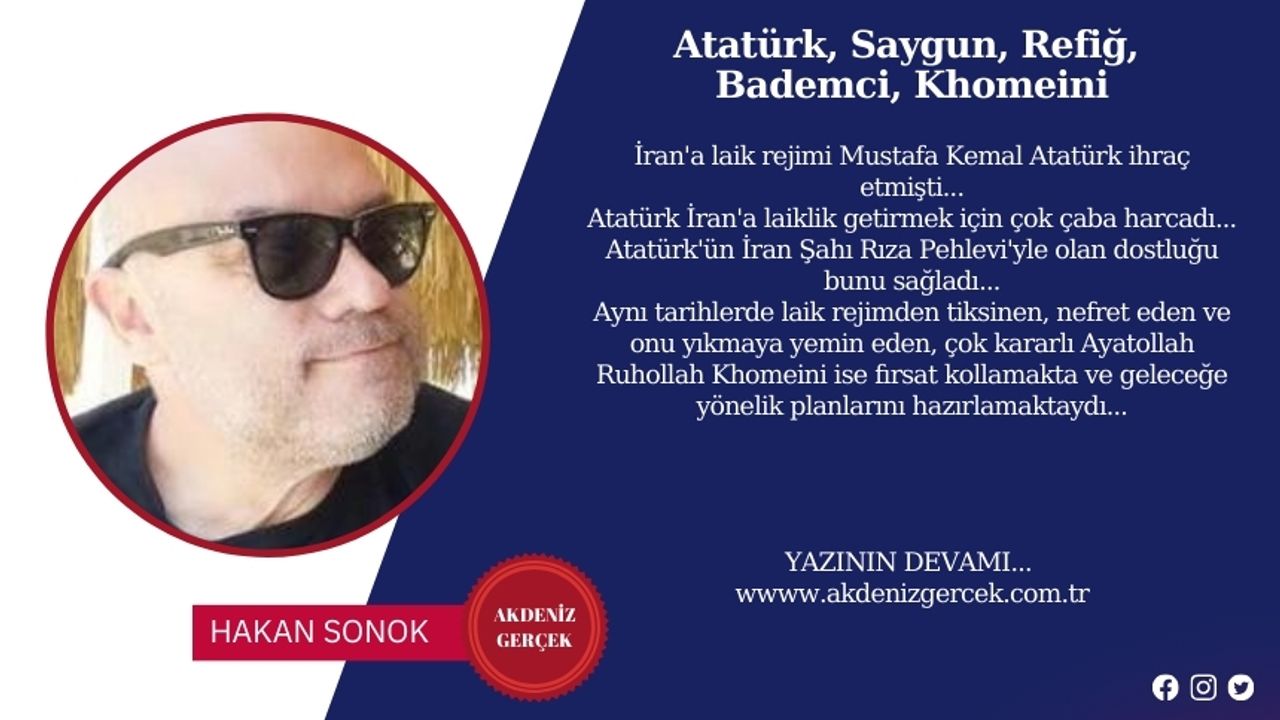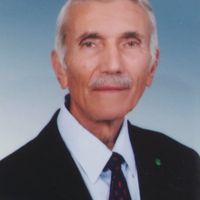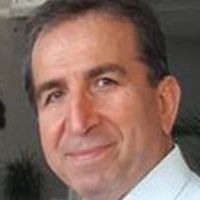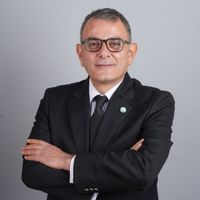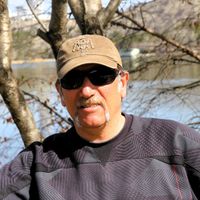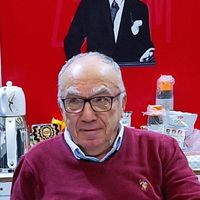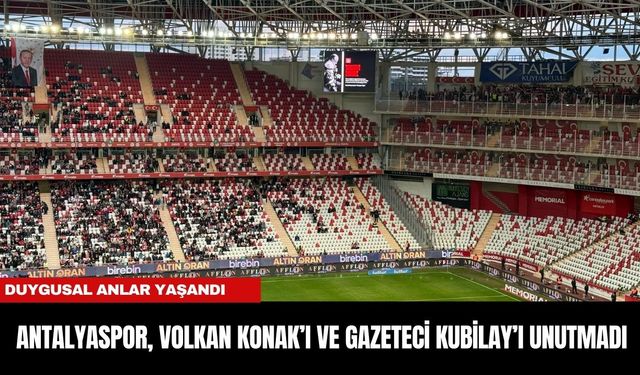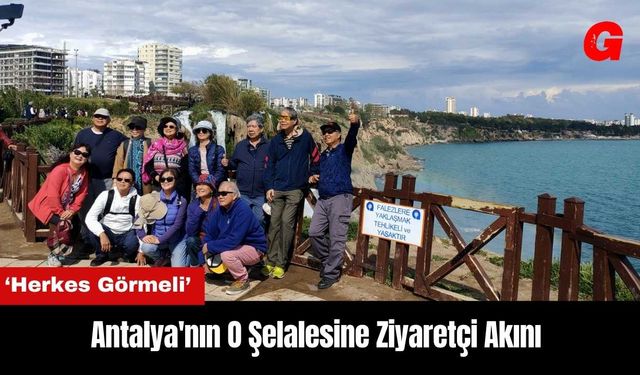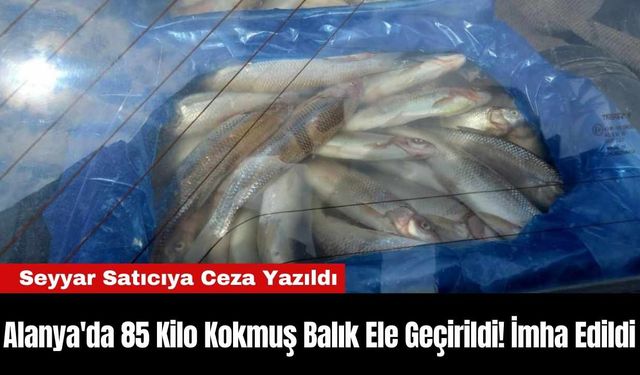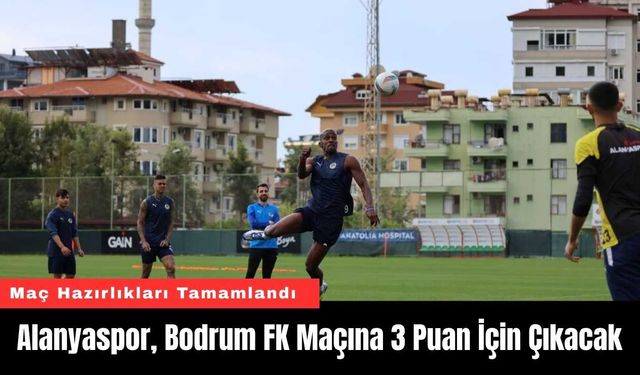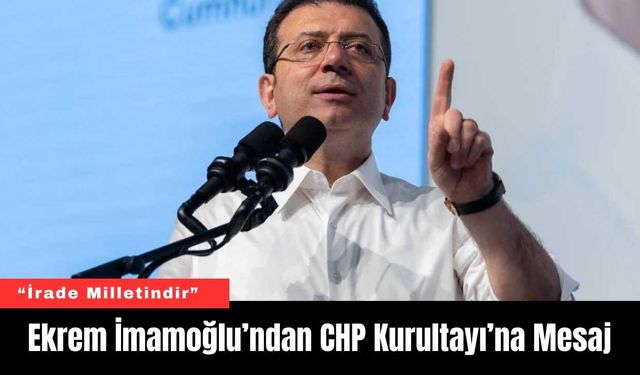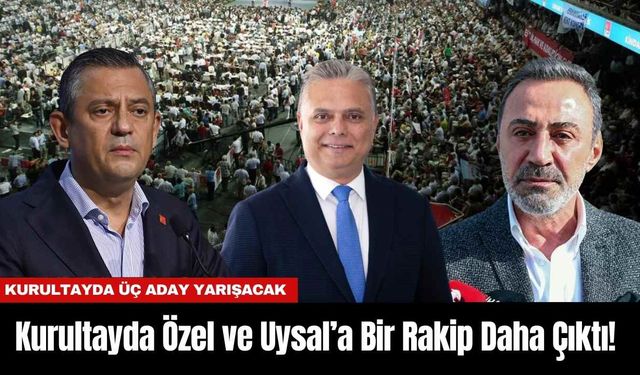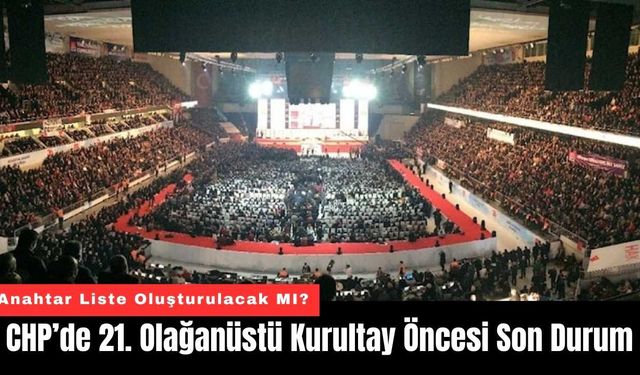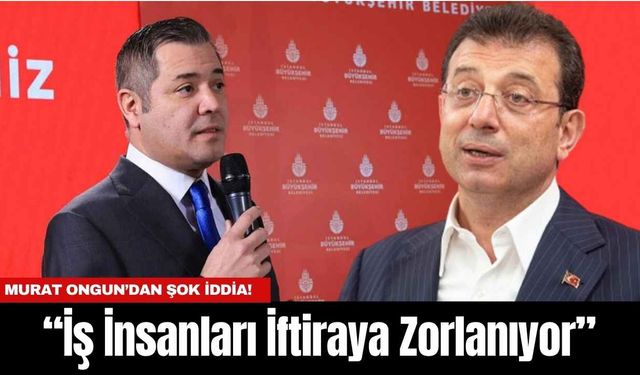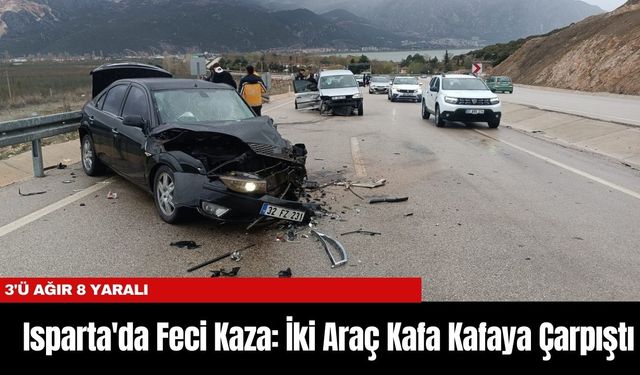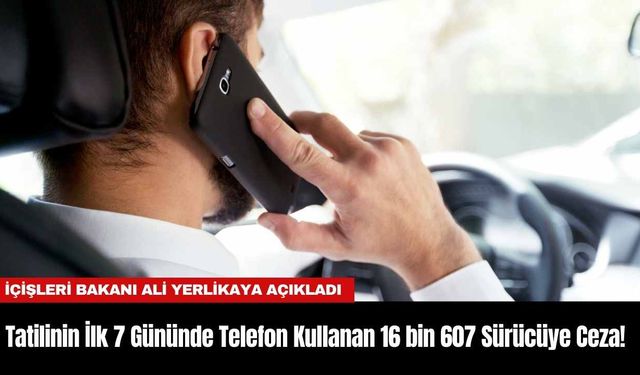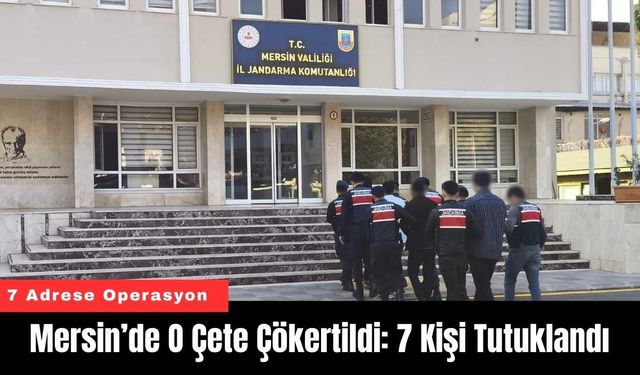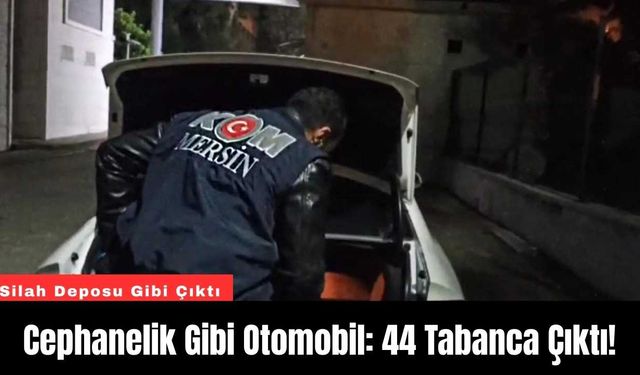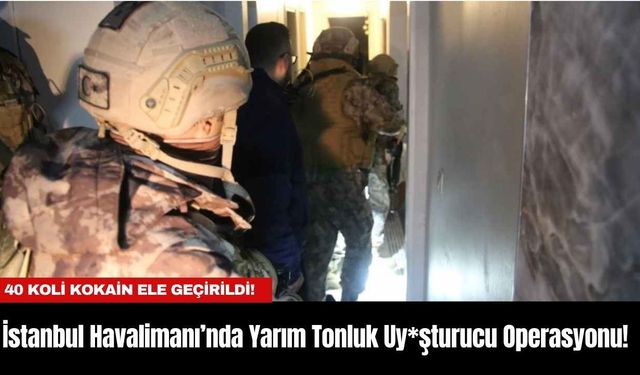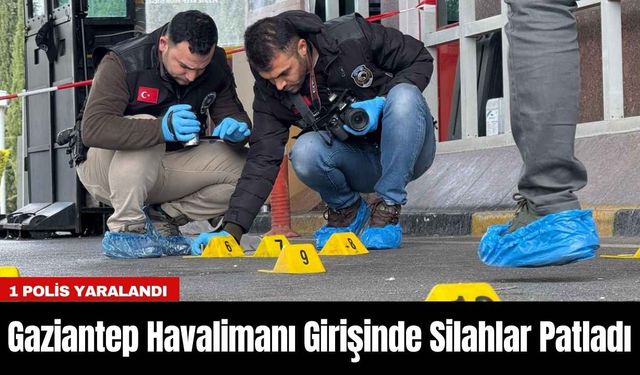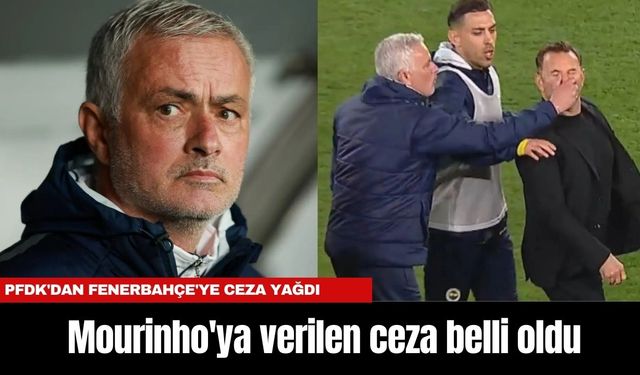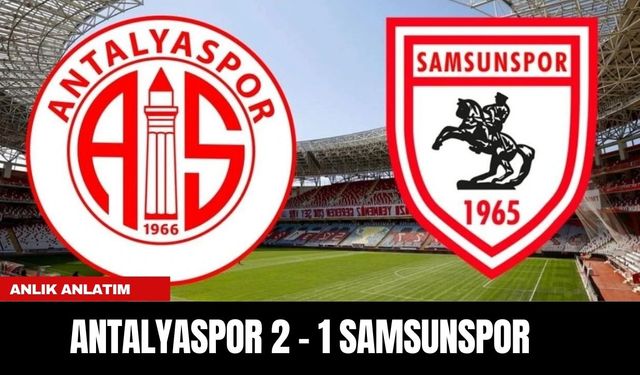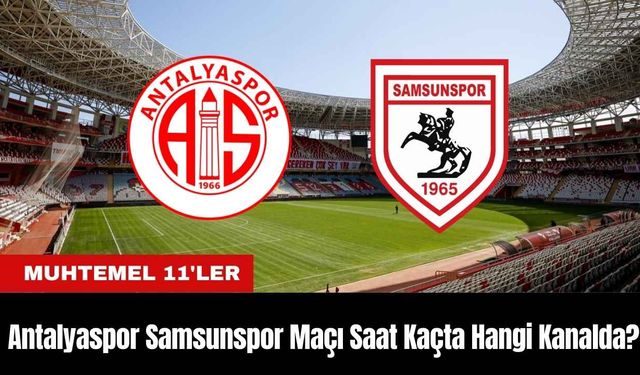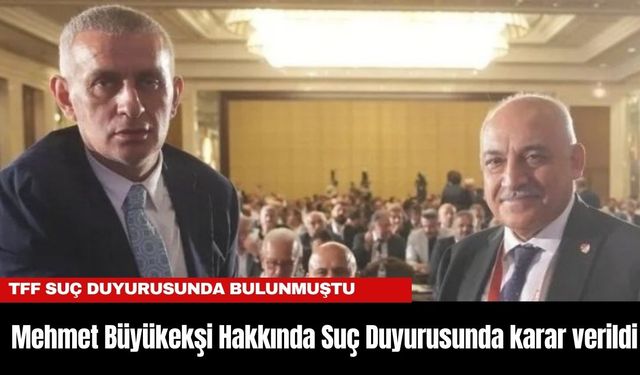İran'a laik rejimi Mustafa Kemal Atatürk ihraç etmişti...
Atatürk İran'a laiklik getirmek için çok çaba harcadı...
Atatürk'ün İran Şahı Rıza Pehlevi'yle olan dostluğu bunu sağladı...
Aynı tarihlerde laik rejimden tiksinen, nefret eden ve onu yıkmaya yemin eden, çok kararlı Ayatollah Ruhollah Khomeini ise fırsat kollamakta ve geleceğe yönelik planlarını hazırlamaktaydı...
Fanatik kindar dinciler laik hükümeti devirip Humeyni'yi Paris'ten döndürebilmek için 19 Ağustos 1978'de Abadan Rexx Sinemasını yaktığında bazı kaynaklara göre 377 ila 800 insan ölmüştü...
Humeynici teröristlerin gayesi istikrarsızlık, kaos yaratmak ve Şah rejiminin yıkılmasını hızlandırmaktı..
Molla derin devletinin İran'ı ele geçirdikten sonra Türkiye dahil birçok ülkeye suikastçilerini göndererek laik kanaat önderlerini öldürttüğü iddiaları ne yazık ki hiçbir zaman olması gerektiği gibi araştırılmamıştır.
Atatürk:
"Güzel sanatlarda muvaffak olmak, bütün inkılaplarda başarıya ulaşmak demektir. Güzel sanatlarda muvaffak olamayan milletler ne yazık ki, medeniyet alanında yüksek insanlık sıfatıyla yer almaktan, ilelebet mahrum kalacaklardır."
ÖZSOY & BİR CUMHURİYET ŞARKISI
Gülper Refiğ'in Atatürk ve Adnan Saygun : Özsoy Operası CD kitap olarak Boyut Yayıncılık tarafından 1997'de yayınlanmıştı...
Adnan Saygun anılarında (Atatürk ve Musiki adlı kitap) "O dönemde eserimin aleyhinde türlü sözler söyleniyordu" diyor...
Atatürk Özsoy'un Halkevi'ndeki provalarını seyretmeye geldi...Adnan Saygun anılarında şöyle diyor:
"Atatürk'ün Riyaset-i Cumhur Orkestrası yerine İstanbul Belediye Konservatuarı'ndaki Yaylı Sazlar Orkestrası' ile Riyaset-i Cumhur Armonisi'nin nefesli sazlarını birleştirek benim yönetimimle bir orkestra ile çalışmalarıma devam etmemi emrettiği sırada söylemiş olduğu sözlerden özellikle bir cümlesi hala kulaklarımda çın çın çınlamaktadır:
"Bu bir inkilap-devrim hareketidir..."
Atatürk:
“Bu sadece bir opera değil, biz burada bir kültür devrimi gerçekleştiriyoruz. Çağı yakalamamız hatta önüne geçmemiz gerek”
Araştırmacı / yazar İlknur Güntürkün Kalıpçı'nın aktarımına göre; Atatürk operanın yapılan tüm provalarına bizzat katılmış, her provanın sonunda sanatçıları alkışlamış ve "Okay, Okay!" diye bağırarak mutluluğunu ortaya koymuş.
Sanatçılar, bu kelimeden dolayı Paşa'nın performanslarını beğenip beğenmediğini bir türlü anlayamıyorlarmış. Bir gün sanatçılardan biri tüm cesaretini toplayarak Okay'ın ne demek olduğunu sormuş;
Atatürk de "Okay öz Türkçe bir kelimedir. Okun yaydan çıktıktan sonra tam isabeti demektir. Yani tamam demektir" cevabını vermiş...
19 Haziran 1934'te Ankara Halkevi'nde İran şahı Rıza Pehlevi'nin huzurunda seslendirilen "Özsoy" Atatürk'ün sipariş ettiği bir operaydı...
Melih Duygulu "Cumhuriyet ve Müzik" adlı kitabında operanın iki ayda yaratıldığını belirtir...Bazı kaynaklar opera 26 günde yaratıldı diyor...
Operanın sözlerini Münir Hayri Egeli yazmıştır...
Andrew Mango 5 yılını harcadığı "Atatürk" adlı kitabında şöyle yazar: Türklerin ve İranlıların atalarının dostluğu teması Özsoy'da işlenmişti...Opera rekor sayılacak sürede yaratılmıştı...
Mustafa Kemal’in Giacomo Puccini'nin "Tosca" adlı operasına (1900) hayranlığını, Sofya’da askeri ataşe iken (1913) General Stilyan Kovaçev’in kızı Dimitrina’yla (Miti) aşk yaşamasını da, flash backlerle (geriye dönüşlerle) anlatan "Bir Cumhuriyet Şarkısı" filmi yönetmen Yağız Alp Akaydın imzasını taşıyor...
Türkiye İş Bankası'nın sponsorluğuyla ortaya çıkan filmde ana karakter besteci Ahmed Adnan Saygun’u Salih Bademci, Atatürk’ü Ertan Saban, operanın söz yazarı Münir Hayri Egeli’yi Ahmet Rıfat Şungar, Solist Nimet Vahid’i Birce Akalay, İstiklal Marşı’nın bestecisi, müzik öğretmeni yetiştirmek amacıyla kurulan Musiki Muallim Mektebi’nin oluşumunda önemli katkılar sunan Osman Zeki Üngör’ü Okan Yalabık, Saygun'la evliliğinde o dönemde kıskançlık kaynaklı sorunlar yaşadığı iddia edilen Mediha Hanım'ı Melis Sezen canlandırıyor...
Filmde 50 ana ve yardımcı oyuncularla birlikte 3 bin 500 figüran rol aldı. Opera sahnesinde 500, Sofya’daki balo sahnesinde özel hazırlanmış kostümleriyle 600 figüran kullanıldı.
ADNAN SAYGUN VE HALİT REFİĞ
Halit Refiğ ve Adnan Saygun, Türkiye’de değeri bilinmeyen yaratıcılarımızdan sadece iki tanesidir. Başka bir ülkede doğup büyüselerdi, yaşasalardı kuşkusuz el üstünde tutulurlardı. Dünya müzik otoriteleri tarafından, Türkiye’nin yetiştirdiği en büyük besteci kabûl edilen Adnan Saygun’un ülkemizde müzik yaşamının bitirilmek istenmesi, hatta bakkallık yapmak zorunda kalması, ölümünden sonra da tüm arşivinin ve kitaplarının insan görünümündeki akbabalarca çalınması, tüm vicdan sahibi aydınlar gibi Halit Refiğ’i de çok incitmiştir.
Adnan Saygun Halit Refiğ’in doğduğu yıl olan 1934’te Atatürk tarafından ilk Türk operası “Özsoy”u bestelemekle görevlendirilmişti. Halit Refiğ’e göre “’Özsoy’ inanılmaz güzellikte melodilerle örülmüştür. Ama gene inanılmaz bir ihmâl ve umursamazlığın kurbanı olarak bir kenarda adeta zorla unutturulmak istenmektedir.”
9 Haziran 2007’de Aya İrini’de düzenlenen Adnan Saygun’un 100. Doğum yıldönümünü kutlama konserine Halit ve Gülper Refiğ çiftiyle birlikte gitmiştim.
Refiğ, besteci Adnan Saygun’ın eserlerine hayranlığı her fırsatta dile getirirdi. ”Vurun Kahpeye” ve “Hanım”da Adnan Saygun’un eserlerini fon müziği olarak kullanmıştır.
Adnan Saygun’a karşı Türkiye’de yapılan haksızlıklar Halit Refiğ’in canını çok acıtmıştı.
Adnan Saygun’un, 1973’te “Vurun Kahpeye”de müziğinin kullanılmasına son derece bozulduğu da bir gerçektir.
Eğer Halit Refiğ, Mimar Sinan üzerine filmini çekebilseydi Adnan Saygun fon müziğini besteleyecekti.
Bu konuda Adnan Saygun’dan söz almıştı. 1975 ile 1991 arasında Adnan Saygun’la yoğun bir dostluk bağı geliştirmişti. Son derece mesafeli bir insan olan Adnan Saygun ve eşi en azından bu fanatik hayranlarıyla aralarındaki mesafeyi kaldırmıştı.
Halit Refiğ’in eserlerini en çok sevdiği diğer besteciler Mahler, Wagner ve Bruckner’di.
Halit Refiğ’in “Saygun ile Son Yıllar, Son Günler” yazısından iki bölüm şöyle: “(Adnan Saygun) Halit Refiğ’le vedalaşırken, ona Eflatun’un Apologia”sının son paragrafını ezberden okudu: “Artık ayrılmak zamanı geldi. Yolumuza gidelim:
Ben ölmeye, siz yaşamaya…
Hangisi daha iyi?
Bunu Tanrı’dan başka kimse bilemez.”
(…)
Halit Refiğ: “Saygun Hoca Çapa Hastahanesi’ndeydi. Hastahaneden eve dönerken ben heyecan ve şaşkınlıktan köprü yoluna saptım. Saygun Hoca arkada bitkin oturduğu yerde durumu fark etti. Bana yanlış yola girdiğimi söyledi. Kısmette meğerse Saygun’un İstanbul’a köprüden son bir defa bakması varmış.”
Adnan Saygun 6 Ocak 1991’de pankreas kanserinden vefat edecekti.Refiğ vefatından kısa bir önce de Zincirlikuyu Kabristanı’nda Adnan Saygun’a çok yakın bir yere toprağa verilmeyi vasiyet etti ve bu vasiyeti yerine getirildi.
Adnan Saygun ve Halit Refiğ’le ilgili ortak bir nokta daha vardır. Saygun, Halit Refiğ o dönemde beş bin kadar TRT mensubunun tüylerini diken diken ederek “Aşk-ı Memnu”yu çevirirken TRT’de yönetim kurulu üyesiydi. TRT mensuplarıysa Türk sinemasının en iyi yönetmenlerinin bile TRT için film çevirmesini istemiyorlardı.
SALİH BADEMCİ
Salih Bademci: "Kürk Mantolu Madonna", "Kulüp", Raif Bey, Ahmed Adnan Saygun, Erol Büyükburç, Zeki Müren
Bolşevik fikirlere sahip ve müzmin inatçı muhalif olduğu için Avrupa'ya kaçmaya çalışırken 1948'de Bulgaristan sınırında katledilen romancı Sabahattin Ali'nin ölümsüz Raif Bey karakterini (Kürk Mantolu Madonna ; 1943; Raif Efendi: Romanın asıl kahramanıdır. Babası Havranlı bir sabuncudur. Babası onu Berlin'e sabun işinde uzmanlaşması için gönderir. Raif orada Maria Puder ile tanışır) canlandırmaya hazırlanan Salih Bademci Selim Songür karakterini canlandırdığı "Kulüp" dizisiyle de hayranlar kazanmıştı...
Maksim Gazinosu'nun sahibi Fahrettin Aslan'ın oğlu Sacit Aslan, dizideki "Kulüp İstanbul"un gerçek hikayesini anlatmıştı...
Kulüp'te yer alan kişilerin gerçekte yaşadığını söyleyen Aslan, bu karakterlerle ilgili dikkat çeken açıklamalarda bulundu.
Sacit Aslan:
"Orada Selim Songür karakteri, tam olarak bilmiyorum ama tahminimi söyleyeyim size, o Zeki Müren değil. O olsa olsa en yakın ihtimalle Erol Büyükburç olmalı, bildiğim kadarıyla. Çünkü neden böyle söylüyorum, Erol Büyükburç da Maksim'e gelip şöhret olmuş biri değil. Bütün Türkiye'de tanındıktan sonra Maksim'e gelip çalıştı. Evveliyatını bilmiyorum ama Rana Denizer çok iyi bilen birinden aldığı bilgilerle bu hikayeyi yazmış olabilir. Ama oradaki Selim karakteri asla Zeki Müren değil."
1930'LARDA KAYSERİ'DE UÇAK ÜRETİLİYORDU...
BU UÇAKLARDAN BİR TANESİNİ MUSTAFA KEMAL ATATÜRK 1934 YAZ AYLARINDA İRAN ŞAHINA HEDİYE ETTİ...
Bu yazı için Patrick Kinross, Andrew Mango ve Yılmaz Özdil'in Atatürk kitaplarından yararlanılmıştır...
Bir varmış bir yokmuş 1930'lu yıllarda Kayseri'de uçak üreten bir Türkiye varmış: İran Şahı 1934 yazında Türkiye'ye geldi... Atatürk Şahın laik İran'ı kurmak için gösterdiği müthiş çabaları teşvik etmek için Kayseri Uçak Fabrikasında üretilen bir uçağı Baba Şaha hediye etti.
Fabrikada 200 kadar uçak üretilmişti...
İran Şahı'nın ziyareti öncesinde İran'la Türkiye'nin bir dostluk anlaşması imzalandı ve bu anlaşmadan sonra Şah Türkiye'yi ziyaret etti...
Azeri aksanıyla Türkçe konuşabilen Şah tarihçi Patrick Kinross'un da belirttiği gibi Atatürk'ü kendisine rol modeli olarak almıştı...
Şahın Türkiye'ye jesti de oldu...Şah Ağrı dağı boyunca uzanan Türk-İran sınır hattının Türkiye'nin lehine düzenlenmesini kabul etti...
Şah Türkiye ziyaretinde bol bol poker oynarken Eskişehir hava üssünü, Yunanlılarla yapılan savaşların olduğu savaş meydanlarını, Çanakkale savaşının yapıldığı alanları, İzmir, İstanbul, Uşak ,Ankara gibi şehirleri bizzat Atatürk'ün rehberliğinde dolaştı...
Atatürk ve İran Şahı trenle uzun bir Batı Anadolu gezisi yaptılar...
19 Haziran 1934'te Atatürk'ün Ahmet Adnan Saygun'a sipariş ettiği "Özsoy Operası"nın Ankara'daki ilk seslendirmesine Atatürk ve İran Şahı birlikte katıldı...Bu opera İran-Türkiye dostluğunu konu alıyordu...
Pehlevi ailesi İran kadınını özgürleştirmiş ve İranlı kadınlar 1 Şubat 1979'da Humeyni Paris'ten Tahran'a dönene kadar İranlı erkeklerle eşit haklara sahip olmuşlardı...
1878 doğumlu bir subay olan Reza / Rıza Şah, 1921'de İranda bir darbe gerçekleştirmiş 1200 askerle Tahranın kontrolünü eline geçirmişti...
Reza / Rıza Şah 1925'teyse Pehlevi Hanedanlığı dönemini başlatmıştı.
Rıza Şah 1926'da taç giyme törenini gerçekleştirdi... İran'ı modernize etmek amacıyla birçok reforma imza atan Pehlevi,Türkiye ile iyi çok ilişkiler geliştirmişti.
Almanların üç milyondan fazla askerle Sovyetler Birliğine saldırdığı 1941de İngiltere ve Sovyetler Birliği tarafından, Almanya & Hitler yanlısı politikaları gerekçe gösterilerek tahttan indirilen Rıza Şah Pehlevi'nin yerine, 1979'da Humeyni tarafından devrilecek oğlu Muhammed Rıza Pehlevi getirilmişti.
Rıza Şah Pehlevi 1944 yılında, sürgün yaşamını sürdürdüğü Güney Afrika'da hayatını kaybetmişti.
İran'da 1953'te Amerika Birleşik Devletleri ve İngiltere'nin çıkarlarına hizmet etmeyen, bu ülkelerin isteklerini yerine getirmeyen Mohammad Mosaddegh İran ordusu kullanılarak Başbakanlıktan uzaklaştırılmıştı...
İran 1979'dan bugüne Amerika Birleşik Devletleri'nin uydusu değil buna rağmen petrol ve doğalgaz zengini ülkede yoksulluk ve işsizlik çok yaygın...
İran Şahı'nın 1934 yaz aylarında Atatürk Türkiyesine yaptığı uzun ziyaretle ilgili olarak Patrick Kinross, Andrew Mango ve Yılmaz Özdil'in Atatürk kitaplarından yararlandım...
AYDINLATICI DİĞER 2 KİTAP
"Şah'ın Bütün Adamları: Bir Amerikan Darbesi ve Ortadoğu'da Terörün Kökenleri" adlı kitabında Amerikalı Stephen Kinzer CIA’nın 1953’te İran’da kotardığı darbenin ibret verici ayrıntılarını gün ışığına çıkarmıştı...
Yoksul halkın seçtiği, demokrasiye ve anayasaya bağlı Musaddık’ın trajik öyküsünün yanı sıra, İngiltere ve ABD’nin dış politikalarının inşa süreçleri de bu kitapta bir casus romanı üslûbuyla anlatılmıştı...
Bu kitap ayrıca ABD'nin Afganistan ve Irak gibi ülkelerde ne tür faaliyetler yürüttüğü hakkında da fikir veriyordu...
Stephen Kinzer, "Darbe: Hawaii'den Irak'a Amerika'nın Rejim Değişiklikleri Yüzyılı" adlı kitabındaysa “Rejim değişikliği çabaları”nın Başkan George W. Bush’la başlamadığını konu aldı...
Bu çabalar yüz yılı aşkın bir süredir Amerikan dış politikasının ayrılmaz parçası olmuştu.
Hawaii monarşisinin 1893’te alaşağı edilmesinin ardından, tüm 20. yüzyıl boyunca ABD'nin hoşuna gitmeyen yabancı ülke hükümetlerinin devrilmesine devam edildi...
Amerika Birleşik Devletleri, kendi politik ve ekonomik hedeflerine engel olarak gördüğü hükümetleri hiç tereddüt etmeden yıktı geçti...
2003 Irak istilası en sonuncusu ama Amerika’nın bu tür operasyonlarının sonu değil. "Darbe"de Stephen Kinzer kralları, başkanları, başbakanları iktidardan devirmeyi kendine vazife edinen cüretkâr Amerikalı politikacıların, küstah ajanların, saldırgan komutanların ve paraya doymayan iş adamlarının hikâyesini anlatıyordu...
Amerika’nın uzun rejim değişikliği çağı Hawaii’de başlayıp Küba, Porto Riko ve Filipinler’in Amerikan idaresine geçmesi ile sonuçlanan İspanyol-Amerikan Savaşı’yla hızlandı.
Amerika, ardından Nikaragua ve Honduras başkanlarının iktidardan devrildiği darbeleri hazırladı ve yönetti. Daha sonra başlayan Soğuk Savaş hesaplaşması, Amerika’nın tüm dünya olaylarına Sovyetler Birliği ile rekabet gözlüğünden bakmasına sebep oldu.
Bu dönemde, Güney Vietnam başkanının katledilmesiyle, İran, Guatemala ve Şili’deki demokratik yönetimlerin iktidardan düşürülmeleriyle sonuçlanan örtülü operasyonlar düzenledi.
Son yıllarda, Grenada, Panama, Afganistan ve Irak’ta olduğu gibi istila hareketleri rejim değişikliklerinin temel aracı haline geldi.
Stephen Kinzer "Darbe" adlı kitabında tüm bunları belgelemişti... İran (1953), Türkiye (1960), Brezilya (1964), Türkiye (1971), Şili (1973), Arjantin (1976), Türkiye (1980) askeri darbelerinin arkasındaki itici güç / destek hep ABD'ydi...
Arjantin'de ABD destekli askeri darbe döneminde (1976-1983) cunta elemanlarının öldürttüğü masum insan sayısı 30 bine ulaşmıştı...
"Şah'ın Bütün Adamları" yazan: Stephen Kinzer Hilal ve Yıldız; İki Dünya Arasında Türkiye adlı kitaplarla tanınan gazeteci Stephen Kinzer bu kez, CIA'nın 1953'te İran'da kotardığı darbenin ibret verici ayrıntılarını gün ışığına çıkarıyor.
Yoksul halkın seçtiği, demokrasiye ve anayasaya bağlı Musaddık'ın trajik öyküsünün yanı sıra, İngiltere ve ABD'nin dış politikalarının inşa süreçleri de bir casus romanı üslubuyla anlatılıyor.
Bunların ötesinde, Stephen Kinzer, bugün Ortadoğu'da hüküm süren ve ABD'nin terörist olarak adlandırdığı oluşumların kökenini yarım yüzyıl önceki İran'da arıyor.
Ortadoğu'nun, İran'ın ve Batı'nın hem dününü hem de bugününü anlamak için temel bir kitap...
An Interview With KHOMEINI
Oct. 7, 1979
Last month Oriana Fallaci, the Italian journalist who is noted for her provocative interviews with world leaders, journeyed to Iran in hopes of meeting with the leader of the Islamic Revolution, the Ayatollah Ruhollah Khomeini. For 10 days she waited in the holy city of Qum for her interview with the 79year‐old Ayatollah, who is the de facto ruler of Iran. On Sept. 12, she was led into the Faizeyah religious school, where Khomeini holds his audiences. She was accompanied by two Iranians Nyho had helped set up the interview and who served as translators. Miss Fallaci, barefoot, enveloped in a chador — the head‐to‐toe veil of the Moslem woman —was seated on a carpet; when the Ayatollah entered, the taped interview began. Miss Fallaci returned the following day for a second audience. The text on these pages is an edited transcript of the sessions.
FALLACI: Imam Khomeini, the entire country is in your hands. Every decision you make is an order. So there are many in your country who say that in Iran there is no freedom, that the revolution did not bring freedom.
KHOMEINI: Iran is not in my hands. Iran is in the hands of the people, because it was the people who handed the country over to the person who is their servant, and who wants only what is good for them. You saw very well how — after the death [at age 68, in his sleep, Sept. 10] of [Ayatollah Mahmoud] Taleghani — millions of persons went into the streets without the threat of violence. This shows that there is freedom. It also shows that the people only follow men of God. And this is freedom.
FALLACI: Forgive me if I insist, Imam Khomeini. I meant that today, in Iran, you raise fear, and many people call you a dictator. The new dictator, the new boss. The new master. How do you comment on that? Does it sadden you, or don't you care?
KHOMEINI: On the one hand I'm sorry to hear that. Yes, it hurts me, because it is unjust and unhuman to call me a dictator. On the other hand, I couldn't care less, because I know that wickedness is a part of human nature, and such wickedness comes from our enemies. Considering the road that we have chosen, a road that is opposed to the superpowers, it is normal that the servants of foreign interests treat me with their poison, and hurl all kinds of calumnies against me. Nor do I have any illusions that those countries which are accustomed to plundering and looting us will stand by silently and idly. Oh, the mercenaries of the Shah say lots of things — even that Khomeini ordered the breasts of women to be cut off. Tell me, since you are here, did you have any evidence that Khomeini could commit such a monstrous act, that he would cut off the breasts of women?
FALLACI: No. I did not, Imam. But you frighten people, as I said. And even this mob which calls your name is frightening. What do you feel — hearing them calling out like this, day and night, knowing that they are there, all of them there sitting for hours, being shoved about, suffering, just to see you for a moment, and to sing your praises?
KHOMEINI: I enjoy it. I enjoy hear ing and seeing them. Because they are the same ones who rose up to throw out the internal and external enemies. Because their applause is the continuation of the cry with which the usurper was thrown out. It is good that they continue to be agitated, because the enemies have not disappeared. Until the country has settled down, the people must remain fired up, ready to march and attack again. In addition, this is love, an intelligent love. It is impossible not to enjoy it.
FALLACI: Love or fanaticism, Imam? It seems to me that this is fanaticism, and of the most dangerous kind. I mean, fascist fanaticism. In fact, there are many who see a fascist threat in Iran today, and who even maintain that fascism is already being consolidated in Iran.
KHOMEINI: No, it is neither fascism nor fanaticism. I repeat, they yell like this because they love me, and they love me because they feel that I care for them, that I act for their good. That is, to apply the Commandments of Islam. Islam is justice. Dictatorship is the greatest sin in the religion of Islam. Fascism and Islamism are absolutely incompatible. Fascism arises in the West, not among people of Islamic culture.
Editors’ Picks
Stolen Packages: When You Can, and Can’t, Blame Your Landlord
Sorry, Mom. I’m Skipping Your Turkey Dinner for a Solo Vacation.
A Prickly Martha Stewart Makes for a Bracing Netflix Portrait
FALLACI: Perhaps we don't understand each other or the meaning of the word fascism, Imam. By fascism I mean a popular phenomenon, the kind we had in Italy when the crowds cheered Mussolini, as here they cheer you, and they obeyed him as they obey you now.
KHOMEINI: No. Because our masses are Moslems, educated by the clergy — that is, by men who preach spirituality and goodness. Fascism would be possible here only if the Shah were to return or if Communism were to take over. Yes, what you say could happen only if Communism would win and wipe us out. Cheering, for me, means to love freedom and democracy.
FALLACI: O.K., then. Let's talk about freedom and democracy, Imam. And let's do it like this. In one of your first speeches at Qum, you said that the new Islamic Government would guarantee freedom of thought and of expression for everyone, including Communists and ethnic minorities. But this promise was not kept, and now you de fine Communists as “sons of Satan,” and the leaders of the rebelling ethnic minorities as the “evil of the earth.”
KHOMEINI: First you affirm something, and then you expect me to explain your statement. You even presume that I should permit the plots of those who want to bring the country to anarchy and corruption — as though freedom of thought and of expression were the freedom to plot and to corrupt. Therefore, in answer to your question, say: For more than five months I tolerated, we tolerated, those who did not think as we do. They were free, absolutely free to do whatever they wanted. They fully enjoyed the freedom that was granted to them. I even invited the Communists to have a dialogue with us. But, in response, they burned the wheat harvest, they burned the urns of the electoral offices, and they reacted to our offer for a dialogue with rifles and arms. In fact, they were the ones who stirred up the problem of the Kurds. Thus, we understood that they were taking advantage of our tolerance to sabotage us, that they did not want freedom but the license to subvert, and we decided to stop them. And when we discovered that — urged on by the former regime and foreign forces — they were seeking our destruction with other plots and other means, we shut them up
FALLACI: For example, by closing the newspapers of the opposition. In that speech at Qum you also said that to be modern means to form men who have the right to choose, and to criticize. But the liberal newspaper Ayandegan was shut down. And so were all the leftist newspapers.
KHOMEINI: The newspaper Ayandegan was part of the plot I mentioned. It had relations with the Zionists; it got ideas from them to do harm to the country. The same goes for all the newspapers that the attorney general of the revolution judged subversive, and then closed: newspapers which, through a phony opposition, tried to restore the old regime and to serve foreign interests. We shut them up because we knew who they were, and what they were after. And this is not contrary to freedom. This is done everywhere.
FALLACI: No, Imam, it is not. In any event, how can you call those who fought against the Shah, who were persecuted, arrested and tortured by him, as being “nostalgic for the Shah'? How can you call them enemies, how can you deny them a place and the right to exist, those leftists who fought and suffered so much?
KHOMEINI: None of them fought or suffered. If anything, they took advantage of the anguish of the people who fought and suffered. You are not very well informed. A good part of the left which you refer to was abroad during the imperial regime, and came back only after the people had overthrown the Shah. Another group was here, it is true, hidden in their clandestine coves and in their houses. It was only after the people had shed their blood that these leftists came out to take advantage of that blood. But until now nothing has happened to limit their freedom.
FALLACI: Imam, I want to make sure that I understand correctly. You say that the left had no part in the overthrow of the Shah. Not even that seg ment of the left that had so many people arrested, so many tortured, so many martyred. So, on the left, nobody counts, neither the living nor the dead.
KHOMEINI: They did not contribute anything. They did not help the revolution at all. Some of them fought, yes, but only for their ideas, only for their goals, only for their interests. They were not decisive for the victory, they were not responsible, they did not contribute anything. No, the left never cooperated with us, they only gave us problems. During the Shah's regime they were against us as much as they are now, so much so that their hostility toward us was worse than that of the Shah himself, much deeper. It is not by chance that the present plot comes from them. My view is that it is not even a real left, but an artificial left, created by the Americans.
FALLACI: Do you mean a left made in the United States, Imam?
KHOMEINI: Yes, created and supported by the Americans to launch plundering against us, to sabotage and destroy us.
FALLACI: So, when you speak of “the people,” you refer exclusively to the people connected with the Islamic movement. And I ask you: The people who were killed by the tens of thousands, did they die for freedom, or for Islam?
KHOMEINI: For Islam. The people fought for Islam. And Islam means everything, also those things that, in your world, are called freedom, democracy. Yes, Islam contains everything. Islam includes everything. Islam is everything.
FALLACI: At this point, Imam, must ask you what you mean by freedom.
KHOMEINI: Freedom; it is not easy to define this concept. Let us say that freedom is when you can choose your own ideas and think about them when you please, without being forced to think something else. Let's say that freedom is to live where you want, and to do the work that you like.
FALLACI: To think, not to express, or to make your thoughts concrete? And by democracy, what do you mean, Imam? I'm asking this question with much curiosity because — in the [March 1979] referendum on whether there was to be a republic or a monarchy — you prohibited the expression “Islamic Democratic Republic.” You banned the word democratic, saying, “Not a word more, not a word less.” As a result, the people who believe in you use the term “democracy” as though it were a dirty word. What's wrong with this noun, which seems so beautiful to us in the West?
KHOMEINI: To begin with, the word Islam does not need adjectives such as democratic. Precisely because Islam is everything, it means everything. It is sad for us to add another word near the word Islam, which is perfect. Besides, this democracy, which you love so much and that you consider so valuable, does not have a precise meaning. Aristotle's democracy is one thing, the Soviet democracy is another thing, the democracy of the capitalists is still another. We cannot afford to have such an ambiguous concept placed in our Constitution. Finally, let me give you a historical example, to show you what mean by democracy. When All [the seventh‐century Imam whom Shiite Moslems believe to be the first rightful Moslem leader] succeeded the Prophet, and became head of the Islamic state — and this consideration had all the power, and his reign extended from Saudi Arabia to Egypt, and included a large part of Asia and also of Europehe happened to have a dispute with a Jew. And the Jew had him called by the judge, and All accepted the summons of the judge, and went to him. And when be entered the room, the judge stood up, but All said to him angrily, “Why do you stand up when I enter the room but not when the Jew entered? Before a judge the two contending parties should be treated the same way.” Afterward, he accepted the sentence, which was unfavorable to him. I ask you, you who have traveled and seen all forms of government and know history, can you give me a better example of democracy?
FALLACI: Imam, democracy means much more than that. This is said by many Iranians, too. The same Iranians who don't understand the direction where your Islamic Republic is going.
KHOMEINI: If you foreigners do not understand, too bad for you. It's none of your business, you have nothing to do with our choices. If some Iranians don't understand it, too bad for them. It means that they have not understood Islam.
FALLACI: Well, they certainly understand despotism practiced by clergy today, Imam. In drafting the new Constitution, the assembly of experts passed one article, the fifth principle, by which the head of the country will have to be the supreme religious authority. That is, you. And the supreme decisions will be made only by those who know the Koran well. That is, the clergy. Doesn't this mean that, according to the Constitution, politics will continue to be determined by the priests and no one else?
KHOMEINI: This law, which the people will ratify, is in no way in contradiction with democracy. Since the people love the clergy, have faith in the clergy, want to be guided by the clergy, it is right that the supreme religious authority should oversee the work of the Prime Minister or of the President of the republic, to make sure that they don't make mistakes or go against the law: that is, against the Koran. It can be either the supreme religious authority, or a representative group of the clergy.
Advertisement
SKIP ADVERTISEMENT
FALLACI: Let's consider for a moment the justice administered by the clergy, Imam. Let's talk about the 500 executions that took place in Iran after the victory. Do you approve of the summary way in which these trials are taking place, without lawyers, without the chance for an appeal?
KHOMEINI: Evidently in the West you ignore, or you pretend to ignore, who was being executed. They were persons who participated in massacres in the streets and the squares, or persons who ordered those massacres, or persons who burned down homes, who tortured, who cut off the arms and legs of those who were being interrogated. What should we have done with them, granted pardons and let them go free? The right to defend themselves, and to respond to accusations — we gave them those chances. But once their guilt was demonstrated, what need was there, or is there, for an appeal? Write the trary if you want, the pen is in your hand. My people do not ask your questions. And I will even go farther: had we not executed those criminals, the revenge of the people would have gone beyond control. Every functionary employee of the regime would have been executed. And the dead would have numbered far more than 500. They would have been in the thousands.
FALLACI: All right, but !did not necessarily mean the tortures and the Savak killers; Imam. I meant • those who were executed and had nothing to do with the regime, the people who are still being shot today for adultery, or prostitution, or homosexuality. Is it right to shoot the poor prostitute or a woman who is unfaithful to her husband, or a man who loves another man?
KHOMEINI: If your finger suffers from gangrene, what do you do? Do you let the whole hand, and then the body, become filled with gangrene, or do you cut the finger off? What brings corruption to an entire country and its people must be pulled up like the weeds that infest a field of wheat. I know there are societies where women are permitted to give themselves to satisfy the desire of men who are not their husbands, and where men are permitted to give themselves to satisfy other men's desires. But the society that we want to build does not permit such things. In Islam, we want to implement a policy to purify society, and in order to achieve this aim we must punish those who bring evil to our youth. Don't you do the same? When a thief is a thief, don't you throw him in jail? In many countries, don't you even execute murderers? Don't you use that system because, if they were to remain free and alive, they would contaminate others and spread
FALLACI: Imam, how is it possible to compare a Savak murderer and torturer with a citizen who exercises his sexual freedom? Take the example of the boy they shot yesterday, for sodomy.
Advertisement
SKIP ADVERTISEMENT
KHOMEINI: Corruption, corruption. We have to eliminate corruption.
FALLACI: Take the case of the pregnant 18-year-old girl who was shot at Beshar a few weeks ago, for adultery.
KHOMEINI: Pregnant? Lies, lies. Lies like those about cutting off the breasts of women. In Islam, these things do not happen. We do not shoot pregnant women in Islam.
FALLACI: They are not lies, Imam. All the Iranian newspapers reported the news, and a debate was held on television because her lover was only given a hundred lashes.
KHOMEINI: If that is true, it means that she got what she deserved. What do I know about particulars? The woman must have done something more serious. Ask the court that condemned her. Stop talking about these things. I am getting tired. These are not important matters.
FALLACI: Then let's talk about the Kurds who are being executed because they want autonomy.
KHOMEINI: The Kurds who are being executed do not belong to the Kurdish people. They are subversives who are acting against the people and against the revolution, such as the one who was shot by a firing squad yesterday. He had killed 13 people. I would prefer it if no one had to be executed, but when someone like the person they caught is shot, it makes me feel good.
Advertisement
SKIP ADVERTISEMENT
FALLACI: And what about when persons are arrested, like the five this morning, because they were distributing Communist handouts?
KHOMEINI: If they were arrested was because they deserved it, because they were serving a foreign interest, like the phony Communists who act on behalf of America, and of the Shah. Enough. I've said enough about these things.
FALLACI: O.K., Imam. Let's talk about the Shah. Was it you, Imam, who gave the order to have the Shah executed abroad, and who said that whoever performed this feat would be considered a hero, and if he were to be killed during the operation, he would go to heaven?
KHOMEINI: No! Not I. Because want the Shah brought to Iran to stand trial in public, for 50 years of crimes against the Persian people, including the crimes of treason and robbery. If he were killed abroad, that money would be lost. And if, instead, we Judge him here, we can get that money back. No, no, I do not want him to be killed abroad. I want him here, here. And in order to make it happen, I pray for his health, just as the Ayatollah [Kazem Shariat‐] Madari prayed for the health of Riza Pahlevi, the father of this Pahlevi, who also fled the country with a lot of money.
FALLACI: But if the Shah returned the money, would you stop the hunt?
KHOMEINI: For the money, if he really returned it, yes. But with regard to the treason against this country, and against Islam, no. How can he be forgiven for the massacre of 16 years ago — or the Black Friday massacre of one year ago? How can he be forgiven for all the death he left behind? Only if the dead were to come back to life could pardon him, and accept the money.
Advertisement
SKIP ADVERTISEMENT
FALLACI: And in order to bring him back to Iran, there would be an operation similar to the one which led to the capture of Eichmann in Argentina, suppose. Does it apply only to the Shah or to his family as well?
KHOMEINI: He who has committed crime Is guilty. If the family did not participate in any crime I do not see why they should be condemned. Belonging to the Shah's family is no crime in itself. His son Riza, for example, did not dirty himself by any crimes, as far as 1 know. Thus, I have nothing against him. He can return to Persia, to Iran, whenever he wants, and live here as a normal citizen. Let him come back.
FALLACI: I say he won't come back, Imam. And what about Farah Diba [the Shah's wife]?
KHOMEINI: The tribunal will decide about her.
FALLACI: And Ashraf [Princess Ashraf Pahlevi, the Shah's sister]?
KHOMEINI: Ashraf is the evil twin of the Shah, a traitoress, just like the Shah. And for the crimes she committed, she must be prosecuted and condemned Just as the Shah.
FALLACI: And the former Prime Minister, [Shahpur] Bakhtiar? [Bakhtiar disappeared last Feb. 12.] Bakhtiar says that he will return to his position, Imam, that he already has a Government to substitute for this Government.
Advertisement
SKIP ADVERTISEMENT
KHOMEINI: If Bakhtiar should be executed or not, I cannot say as yet. But I do know that he must be prosecuted. Let him come back, let him come back, even with his new Government. Let him come back, even arm‐in‐arm with the Shah. Thus, they would end up in court together. Yes, I must admit that would very much like to see Bakhtiar together with the Shah, hand‐in‐hand. I'm looking forward to it.
FALLACI: Death to Bakhtiar also, therefore. Imam Khomeini, haven't you ever forgiven anyone? Have you ever felt pity, sympathy for someone? And while we are at it, have you ever cried?
KHOMEINI: I cry, I laugh, I suffer. Do you think I'm not a human being? With regard to forgiving: I pardoned the majority of those who caused us harm. I granted an amnesty to the police, to the gendarmes, to a lot of people. That is, to those who were not involved in torture or serious crimes. just granted an amnesty to the rebel Kurds. Thus I believe that I have demonstrated pity. But for those that we discussed before, there is no pardon, there is no pity. Now that's enough. am tired, that's enough.
FALLACI: Please, ‘mam, there are many things I still want to ask you. For example, this chador that they made me put on, to come to you, and which you insist all women must wear. Tell me, why do you force them to hide themselves, all bundled up under these uncomfortable and absurd garments, making it hard to work and move about? And yet, even here, women have demonstrated that they are equal to men. They fought just like the men, were imprisoned and tortured. They, too, helped to make the revolution.
KHOMEINI: The women who contributed to the revolution were, and are, women with the Islamic dress, not elegant women all made up like you, who go around all uncovered, dragging behind them a tail of men. The coquettes who put on makeup and go into the street showing off their necks, their hair, their shapes, did not fight against the Shah. They never did anything good, not those. They do not know how to be useful, neither socially, nor politically, nor professionally. And this is so because, by uncovering themselves, they distract men, and upset them. Then they distract and upset even other
Advertisement
SKIP ADVERTISEMENT
FALLACI: That's not true, Imam. In any case, I am not only talking about piece of clothing, but what it represents. That is, the condition of segregation into which women have been cast once again, after the revolution. The fact that they can't study at university with men, or work with men, for example, or go to the beach or to a swimming pool with men. They have to take a dip apart, in their chadors. By the way, how do you swim in a chador?
KHOMEINI: This is none of your business. Our customs are none of your business. If you do not like Islamic dress you are not obliged to wear it. Because Islamic dress is for good and proper young women.
FALLACI: That's very kind of you, Imam. And since you said so, I'm going to take off this stupid, medieval rag right now. There. Done. But tell me something. A woman such as I, who has always lived among men, showing her neck, her hair, her ears, who has been in war and slept in the front line in the field among soldiers, according to you, is she an immoral, bold and unproper woman?
KHOMEINI: Your conscience knows the answer. I do not judge personal matters, I cannot know whether your life is moral or immoral, whether you behaved properly or not with the soldiers at the front. But I do know that, during my long lifetime, I have always been right about what I said. If this piece of clothing did not exist — the Islamic dress — women could not work in a useful and healthy way. And not even men. Our laws are valid laws.
FALLACI: Even if the law permits man to have four wives, Imam?
KHOMEINI: The law of the four wives is a very progressive law, and was written for the good of women, since there are more women than men. More women are born than men, and more men are killed in war than women. A woman needs a man, so what can we do, since there are more women than men in the world? Would you rather prefer that the excess number of women became whores — or that they married a man with other wives? And let me add another point. Even under the difficult conditions which Islam imposes on a man with two or three or four wives, there is equal treatment, equal affection, and equal time; this law is better than monogamy.
Advertisement
SKIP ADVERTISEMENT
FALLACI: But you are talking about laws and customs that go back 1,900 years ago, Imam Khomeini. Doesn't seem to you that the world has progressed since then? In observance of those laws, you have even resurrected the prohibition against music and alcohol. Tell me, why is it a sin to drink a glass of wine or beer, when you are thirsty or when you're eating? And why is listening to music a sin? Our priests drink and sing — even the Pope. Does this mean the Pope is a sinner?
KHOMEINI: The rules of your priests do not interest me. Islam prohibits alcoholic drinks and that's all. It prohibits them in an absolute way, because drinking makes pet de lose their heads and impedes clear thinking. Even music dulls the mind, because involves pleasure and ecstasy, simi:ar to drugs. Your music, I mean. Usually your music has not exalted the spirit, it puts it to sleep. And it destructs our youth, who become poisoned by it, and then they no longer care about their country.
FALLACI: Even the music of Bach, Beethoven, Verdi?
KHOMEINI: I do not know those names. If their music does not dull the mind, they will not be prohibited. Some of your music is permitted. For example, marches and hymns for marching. We want music that lifts the spirit, as in marches, music that makes our youth move instead of paralyzing them, music that helps them to care about their country. Yes, but your marches are permitted.
FALLACI: Imam Khomeini, you always use harsh terms when speaking of the West. Any judgment you express about us draws the conclusion that you view us as champions of every kind of ugliness, every kind of perversion. And yet you were accepted by the West when you went into exile, and many of your associates started in the West. Doesn't it appear to you that there is also something good about us?
KHOMEINI: Something, yes. Something. But when we have been bitten by a snake, we are even afraid of a piece of rope which from afar looks like a snake. And you have bitten us too much, and too long. You only saw in us a market, and that was all. You only exported bad things to us, and that was all. The good things, such as material progress, you kept such things for yourself. Yes, we got many bad things from the West, a lot of suffering, and now we have good reasons to fear the West, to keep our youth from getting too close to the West and being influenced even more by the West. No, I do not want our youth to go and study in the West, where they become corrupted by alcohol, by the music that blocks out thought, by drugs and uncovered women. To say nothing of the fact that our youth are not given the same treatment as your youth in the West. You give our youth a diploma even if they
Advertisement
SKIP ADVERTISEMENT
FALLACI: Yes, Imam, but the airplane that brought you back to your country is a product of the West — even the telephone that you use to communicate with, from Qum, even the television set that you so often use to convey messages to the country, even this airconditioner, which permits you to remain cool in this desert. If we are so corrupt and so corrupting, why do you use our evil tools?
KHOMEINI: Because these are the good things from the West. And we are not afraid to use them, and we do. We are not afraid of your science and of your technology. We are afraid of your ideas and of your customs. Which means that we fear you politically and socially. And we want this to be our country. We do not want you to interfere anymore in our politics and our economy, in our habits, our affairs. And from now on, we will go against anyone who tries to interfere — from the right or from the left, from here or from there. And now that's enough. Go away. Go away.
FALLACI: One last question, Imam. During these days that I have been in Iran, I have noticed a lot of discontent, a lot of disorder and chaos. The revolution has not brought the good fruits it promised. The country is sailing in dark waters, and there are some who see very difficult times for Iran. There are even those who foresee a development of the conditions for a civil war, or a coup d'état. What do you think?
KHOMEINI: I shall say this. We are like the child that is only six months old. Our revolution is only six months old. And it is a revolution that took place in a country that was eaten alive like a field of wheat infested with locusts. We are at the beginning of our road. What do you expect of a child that is six months old, born in a field filled with locusts, after 2,500 years of bad harvests and 50 years of poisonous harvests? That past cannot be wiped out in a few months, not even in a few years. We need time. We ask for time. And, above all, we address ourselves to those who call themselves Communists, or democrats, or God knows what. They are the ones who do not want to give us time. They are the ones who attack us, and spread around talk of civil wars and coups which won't take place because the people are united. They are the ones who are spreading chaos. Those who call themselves Communists and democrats and God knows what, 1 repeat. Now, goodbye. Inshallah.

